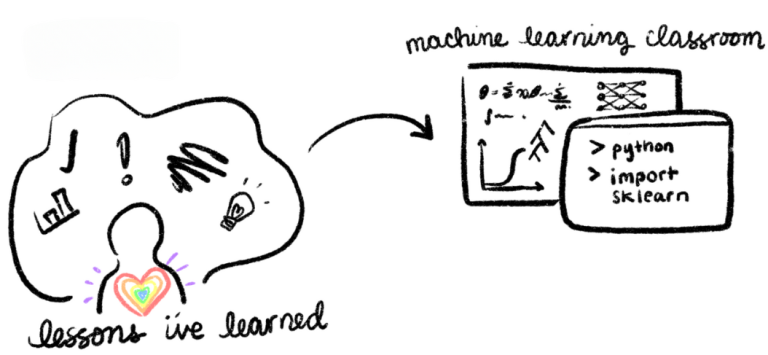This previous June, I graduated with my PhD from the University of Washington Information Science program. My PhD journey was not a straightforward one (is there even such a factor?). I grappled with gender id, trauma restoration, getting sober, the pandemic, a authorized case relating to sexual violence I had skilled, and the sudden demise of my associate. And I’m doing properly.
Practically every part has shifted for me since I moved to Seattle six years in the past. I’m not the identical individual I used to be once I began, nor would I need to be. By falling aside, I discovered myself once more.
However one factor remained fixed — the enjoyment I really feel when working with new learners who’re inquisitive about AI. Through the years, I’ve taught center schoolers, highschoolers, undergraduates, Information Science Grasp’s college students, fellow engineers, previously incarcerated individuals, business professionals, software program engineers, therapists, lecturers, and anybody I discover myself speaking to on the bus cease or espresso line. I’ve had the privilege of speaking about AI with individuals from all walks of life all around the world (I used to be even invited to speak about my dissertation work with a gaggle of Thai monks final month!). I’ve designed actions for Misinfo Day by means of the Center for an Informed Public, and labored with Code.org to develop AI activities for middle and highschoolers. I’ve been the “AI skilled” for a highschool Model UN debate (that was enjoyable!), and I’ve trained therapists to spot misinformation and work with their clients to build healthier relationships to social media scrolling. I led a Directed Research Group the place we labored on NLP evaluation of how Instagram customers made sense of “the algorithm”, which advanced into this paper: Attached to the Algorithm: Making Sense of Algorithmic Precarity on Instagram. I’ve labored with the OSWC on overdose consciousness and Naloxone/Narcan trainings, the place I developed their information evaluation to make sure the efficacy of their coaching course. All of those endeavors have one thing in frequent: my perception that data could be therapeutic. Information is energy, sure. However data can also be company; data is therapeutic; data is connecting; data is speaking; data is exploration. So over the previous six years, I targeted my efforts on how we educate about AI, and the way we work in the direction of a way forward for AI that’s much less dangerous.
“My dissertation is written as a useful resource for you, whether or not you’re a scholar, instructor, policymaker, engineer, or curious reader. My dissertation is a useful resource to be shared and benefited from. I hope that you will see that one thing helpful in its pages.”
My dissertation is formatted to be simple to skim — nobody, not even I, needs to learn a 200+ web page doc to get the details. My dissertation is written as a useful resource for you, whether or not you’re a scholar, instructor, policymaker, engineer, or curious reader. My dissertation is a useful resource to be shared and benefited from. I hope that you will see that one thing helpful in its pages.
You may try the ultimate part titled “If You Learn Something, Learn This”, which I’ve included beneath.
